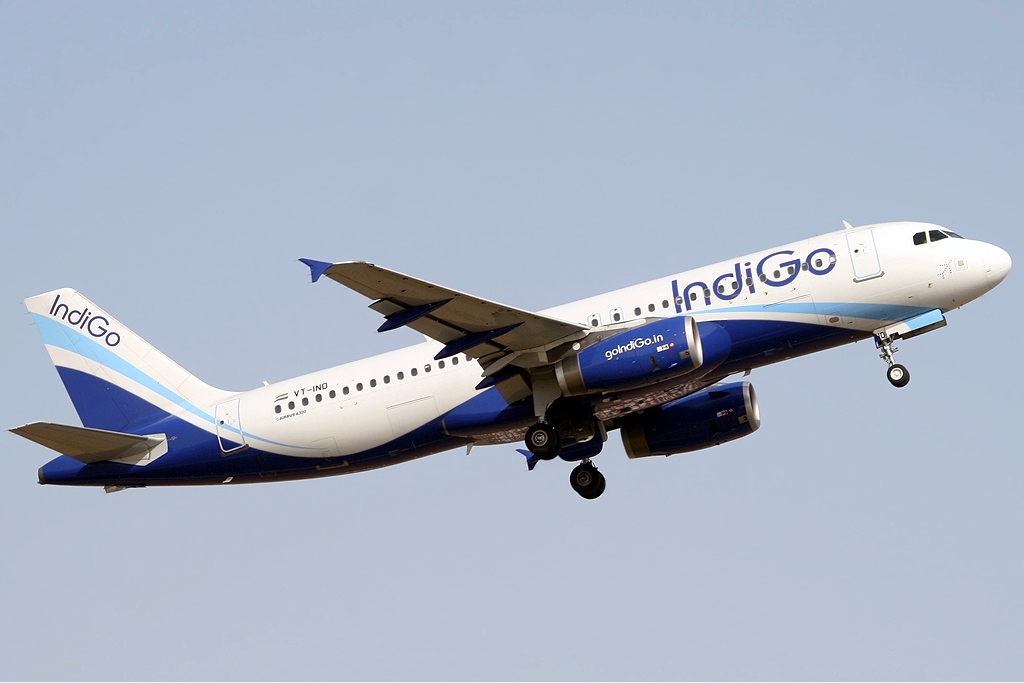
Why IndiGo promoters' feud may be all about control

The spat between co-promoters of India’s most successful airline, IndiGo, shows that corporate honchos pull no punches when the going gets rough.
However, it is not clear what triggered the row and what the underlying intention of the warring factions were.
Rakesh Gangwal wrote to markets regulator SEBI on Monday (July 8) against Rahul Bhatia’s work at IndiGo. Gangwal, who spent decades working in the industry, with stints at United Airlines, Air France and US Airways teamed up with Bhatia to start IndiGo.
In his letters, Gangwal says, at one place, while accusing Bhatia of poor governance, “even a paan ki dukaan would have handled matters with more grace”. Bhatia gives it back, pointing towards Gangwal’s “hurt ego” and how the current allegations are nothing but the second act of his “theatrical production”.
More such gems are to be found in the verbose letters Bhatia and Gangwal have written to each other but the issue at the heart of the controversy remains unclear as of now. Is it the usual fight for control of a hugely successful business, where relations between the promoters soured? This fight for control is likely being couched in insignificant pointers such as “Related Party Transactions” (RPTs).
In simple terms, RPT allegations in this matter related to stay of IndiGo crew at hotels owned by Bhatia, and deals the airline made for real estate rentals; call center services; simulator training facilities; GSAs (originally for domestic passenger & cargo and for foreign markets) – all owned by Bhatia.
Bhatia (representing InterGlobe Enterprises, IGE) and Gangwal (representing RG group), are the two founders of InterGlobe Aviation (IndiGo) controlling almost 37 per cent and 38 per cent stake each and the RG group has now taken its issues to markets regulator SEBI.
Analysts at ICICI Securities say the core issue remains of overriding power of IGE in the board which is leading to decadence of governance standards of IndiGo, related to RPTs between IndiGo and IGE.
Also read: Quick expansion, dilution of low-cost model could be behind rift between IndiGo promoters
IGE, on its part, claims that RPT allegations are baseless (with validations of EY audit report apart from being immaterial) and are veiled attempts to dilute the controlling rights of IGE, as provided under the articles of association of IndiGo.
Why RPTs may not be crux of the dispute is clear from what Bhatia says at one place, reacting to allegations from Gangwal, “the relatively minuscule numbers – RPTs account for less than 0.7 per cent (and continuing to decline) of the turnover of the company – are relevant to negate. Gangwal’s storyline that RPTs are commonplace and a daily affair and thereby the unsaid piece that these are a big source of leakage.”
There are no direct allegations of funds diversion by Gangwal and his repeated references to governance issues are also puzzling since the shareholders’ agreement providing overriding powers to Bhatia has been in place for long. If objections have arisen, why now?
The widening gulf between Gangwal and Bhatia, who came together years ago to launch a budget airline and have since seen it soar to dizzying heights, has surprised many. Till recently, IndiGo’s storied rise was spoken of in awed whispers, its systems and practices held in reverence across India’s faltering airline industry.
The airline is known to place the most audacious aircraft orders ever, has been the only consistently profitable airline in the Indian space for years and controls nearly 40 per cent of the domestic market. Analysts are again predicting a healthy bottomline growth of up to 10 per cent for the airline in the June quarter.
The IndiGo scrip plunged by almost a fifth or 19.24 per cent to ₹1,264.85 on Wednesday to its lowest level in almost three months, after news of the feud between promoters.
Shriram Subramanian, MD of proxy advisory firm InGovern, wondered what were the genesis of the allegations made by Gangwal and what triggered the current situation? “What does Gangwal want, we are not clear. Does he want RPTs not to be there at all, does he want to nominate more directors to the board? Shareholders should watch closely how this dispute (between IndiGo promoters) moves forward… If only RPT an issue, disclosures exist in the annual report and amounts (involved in RPTs) are fairly insignificant.”
But as a general rule, he said any shareholder agreement between promoter groups should be made available in the public domain for other investors.
And J N Gupta, MD at proxy advisory firm Stakeholder Empowerment Services (SES), pointed out that minority shareholders of IndiGo need not worry about their investment as long as the disagreements between the two promoters are resolved.
Gupta also pointed out that Gangwal has been complaining about excessive rights to Bhatia but these rights were given away by him “without checks and balance. If at all something is wrong, Gangwal may be responsible since he remained a passive shareholder all these years.”


